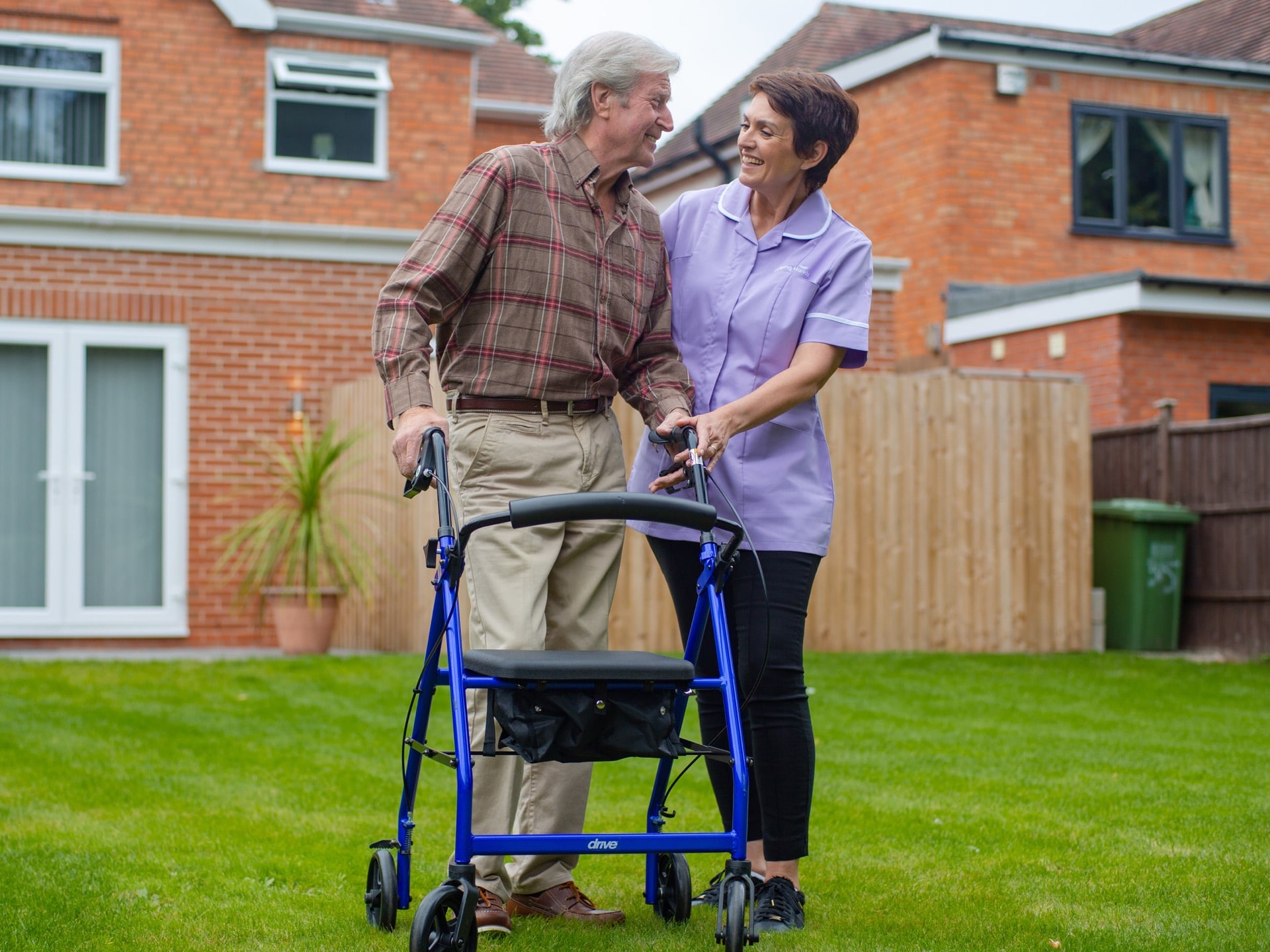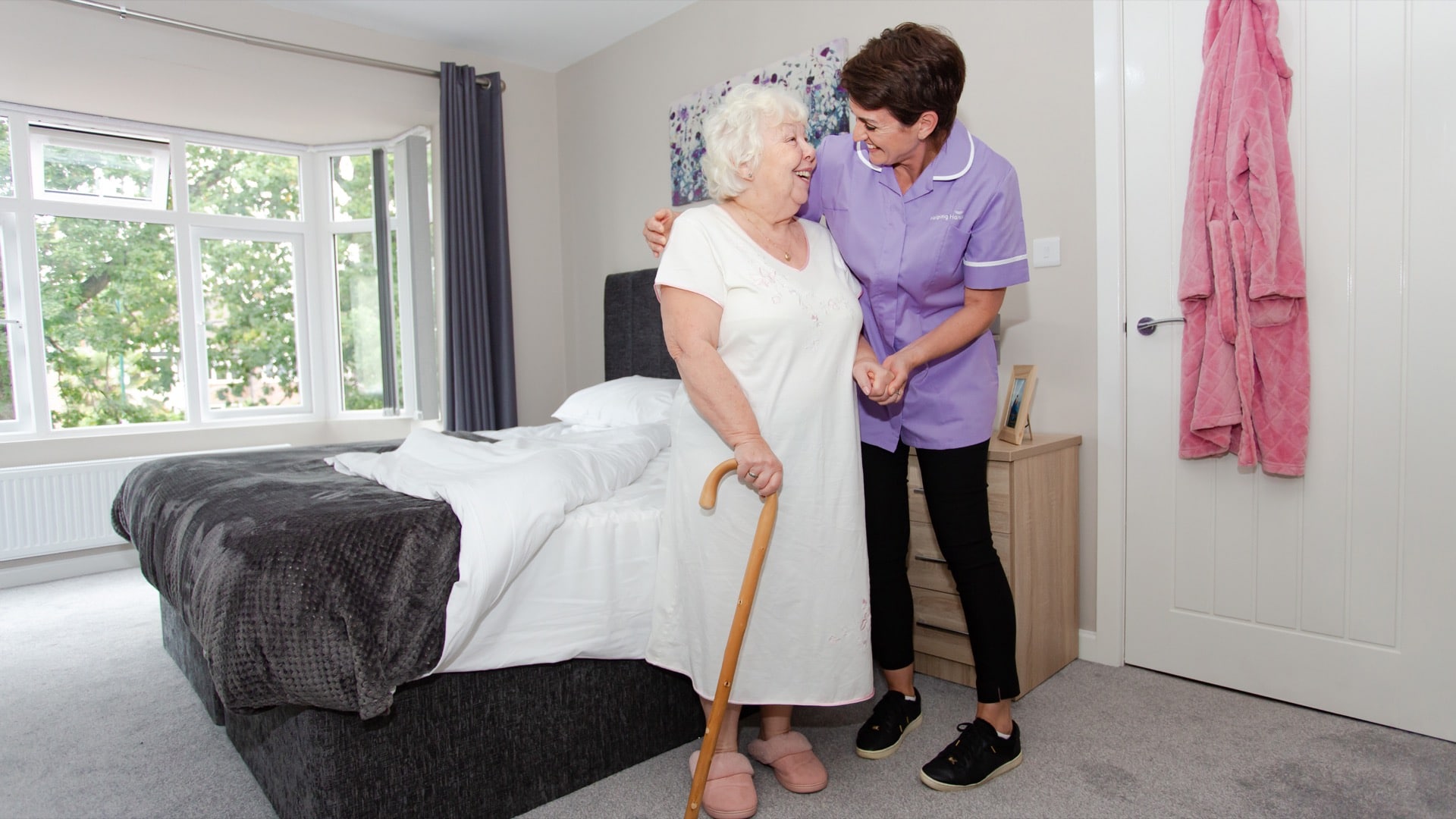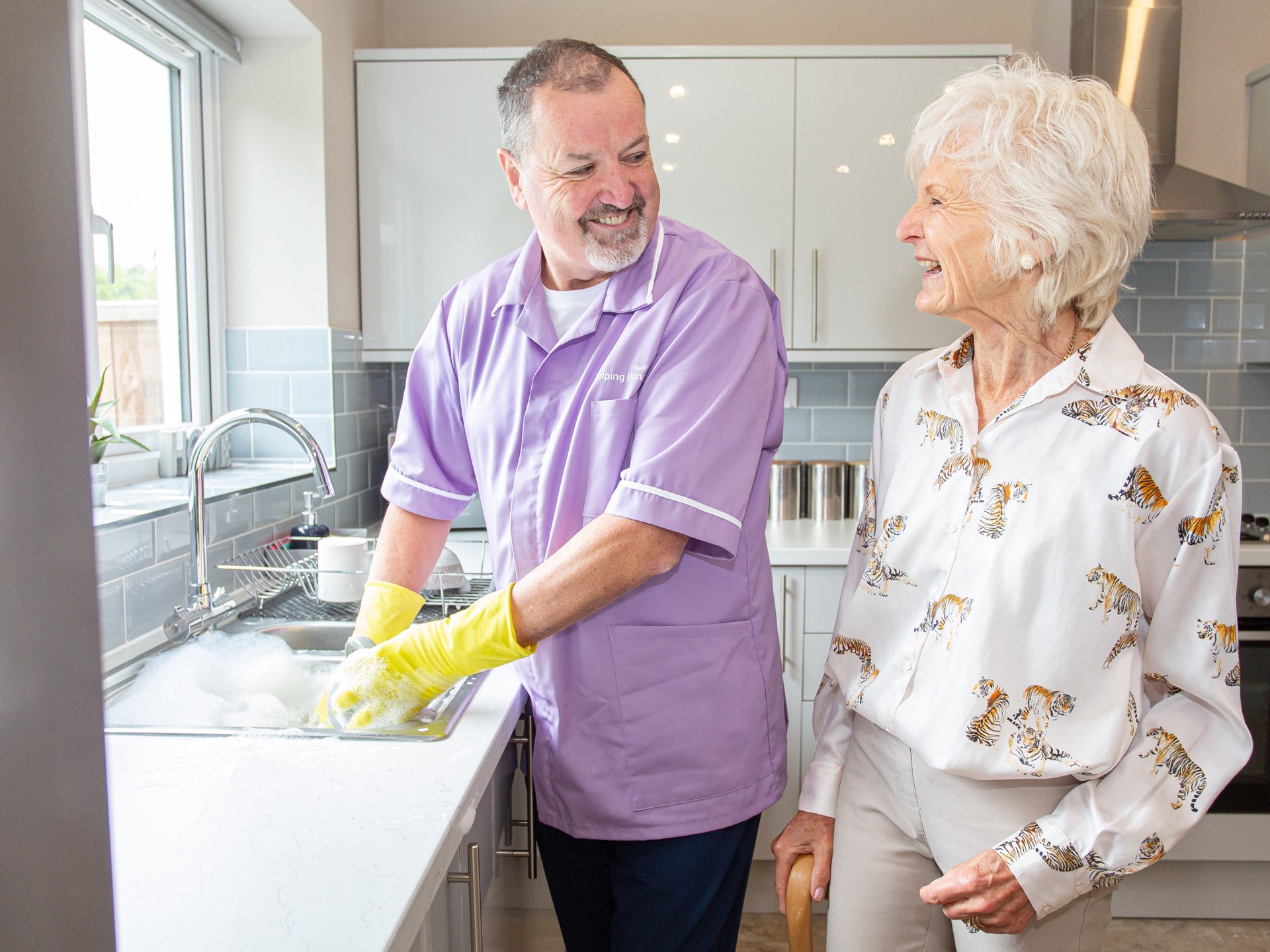Specialist Shoes For The Elderly
Why consider getting specialist footwear for the elderly?
As we get older, it’s only natural that we’ll start to lose a bit of mobility and stability.
At Helping Hands, whilst we don’t provide specialist footwear for the elderly, we do recommend it when appropriate. Our carers will always be happy to help you find something that’s right for you.
Getting older can often mean we end up being a bit less steady on our feet, which can lead to a lack of self-confidence and be detrimental to our independence. For the elderly, the risks associated with a fall become much greater – health risks include head injuries, muscle damage and bone fractures – so it’s worth taking all available precautions to minimise the possibility of it happening. One such precaution is to ensure you’re wearing appropriate footwear that gives you the support that you need on a day-to-day basis.


Having a pair of shoes that fit properly can be a big help in providing stability and balance, meaning it’s easier to stay upright and – in the event of a stumble – catch yourself before it turns into a full fall.
Specialist footwear can also help you to maintain a relatively active lifestyle, which is beneficial for your long-term health and can help prevent or treat many medical conditions, including heart conditions, mental health problems and diabetes. Additionally, the right pair of shoes can reduce the amount of stress put on the joints, tendons and ligaments in your feet and legs.
Visit the Simply Feet website to browse for the perfect shoe for you
Types of specialist shoes
There are several different types of shoes and adaptations available for seniors.
Specialist shoes can serve a number of purposes, and there are an increasing number of specialist shoe options available. You can also add adaptations to your shoes to personalise them to your needs, such as non-slip or non-skid soles to help prevent falls, easy open and close fasteners, wider opening so it’s easy to get feet into shoes, and extra padding for comfort.
Specialist shoes include:
Winter footwear
Walking shoes
Non-slip house shoes
Shoes without laces
Customised orthotics
Orthopaedic footwear
Orthopaedic footwear is designed to support or accommodate the structure and mechanics of your feet, ankles and legs. As you get older, your body starts to break down and your bones and joints become weaker, so it’s important to make sure your shoes are giving you all the support and stability you need. Orthopaedic shoes have a number of features that make them suitable for elderly people, such as a strong midsole and outsole, removable sock liners and a firm heel counter.
Another option for comprehensive foot, ankle and leg support is to have bespoke orthotics which are designed to your feet. Bespoke orthotics correct any issues you might be experiencing with your feet such as problems with walking, foot pain, plantar fasciitis and arthritis. A podiatrist will take a casting of your foot so that they can develop a mould that delivers the right type and level of support.
Whether you want a comfortable pair of slippers to wear around the home or a smart pair of shoes to wear out and about, there are specialist options available that mean you don’t have to compromise on your comfort and physical well-being. Specialist shoes and slippers contain features such as Velcro fasteners, extra wide fitting, secure soles and firm backs. This helps to limit problems experienced by elderly people, such as a lack of stability or swollen feet. Comfort is also a priority in shoes for elderly people, as is the use of high-quality materials.
Footwear aids
For people with limited mobility, putting on shoes and socks isn’t always the easiest process. For some people, simply sitting down will do the job, but for others it isn’t that straightforward. Thankfully, there are a few aids available to help make the process less painstaking and time consuming.
Items such as shoehorns and sock horns are ideal for people who aren’t able to stretch all the way down to their feet, and provide a quick and easy way to put shoes and socks on and take them off.
People with back problems or limited hand dexterity who struggle with tying shoelaces might consider purchasing elastic shoelaces, which transform a lace-up shoe into a slip-on shoe, or a support frame that will temporarily bear their weight.

